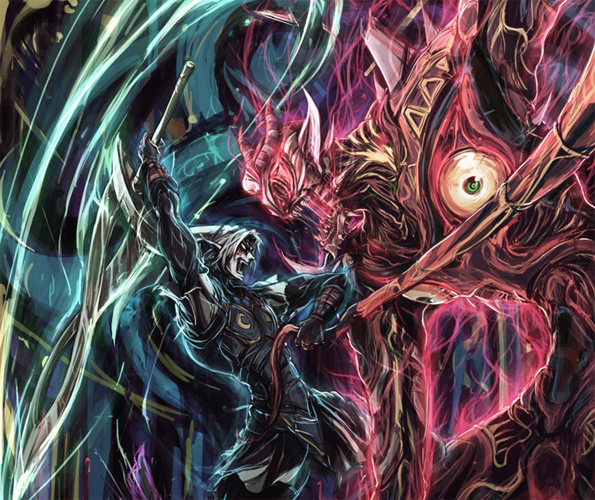To quote ancient words of wisdom: “Everybody’s sayin’ that the Scatman stutters but doesn’t ever stutter when he sings. But what you don’t know, I’m gonna tell you right now that the stutter and the scat is the same thing, yo, I’m the Scatman.”
- 0 Posts
- 6 Comments

 1·11 months ago
1·11 months agoHaving played a playtest Phoenix Sorcerer, the Control Flames spell is surprisingly useful with a hooded lantern. It’s basically Daylight as a 1sp consumed component cantrip.

 1·1 year ago
1·1 year agoIt depends on the tone of the setting. Someone who gets their leg broken in a Forgotten Realms game can usually find a small-time priest to cast Cure Wounds on them, preventing most disabilities that aren’t from birth. Someone who gets their leg broken in Warhammer Fantasy has to hope within their gimped traveling distance that there’s a priest of the correct faith capable of appeasing the gods for the healing to happen, before their detriments become permanent. As such, having a disabled character in a game with more accessible healthcare requires an extra degree of explanation, on top of the PCs’ and players’ emotional response to someone being so downtrodden. The circumstances of their ailment, who or what was responsible, how they see their ailment and work around it, all are weights on the players’ suspension of disbelief that a GM has to take into account that they generally otherwise wouldn’t with John Miller, the able-bodied dude who runs the mill with a wife, three kids, and a problem with rats stealing the grain that he mills. It’s like a Chekov’s Gun in that sort of way, the GM as a storyteller surely wouldn’t spend the effort to decide that an NPC has a trait that is notably separate from the default without it being somehow relevant to the plot. The mage asks the party to do a quest for their magical research, a general asks the party to do a quest for national security, and a person in a wheelchair… what desire do you give them that wouldn’t be misconstrued as able-ist or a waste of that character trait? It’s very difficult, often comes with an air of making some kind of a statement, either that they’re a writer capable enough to wear disabled-face without it being offensive, or taking a preachy high-ground telling people a message about human sympathy, determination, and adaptability that they’ve already been made well aware of by the existence of popular culture.

 1·1 year ago
1·1 year agoI more meant the layers of their concentric orbits as distanced from their center (the Sun or the Earth). Considering how quickly Mercury orbits the Sun while being the closest planet to it, it makes sense it’d be at perigee more frequently and with less variable distance than other planets that have a wider orbit.

 1·1 year ago
1·1 year agoAlmost happened in the last Warhammer session I was in. DM made a door that had three locks depending on knowing alchemical symbols, formulae, and the geocentric model. Because the GM forgot that Warhammer doesn’t have a flat “magic knowledge” roll like Arcana in D&D 5e, the party mage doesn’t know anything, the rest of the party was illiterate, and everyone got so frustrated that everyone except my character tried either breaking the door or entering through the window while the wizard was still home and foiling their attempts. To our credit, we were able to figure out the first two locks with trial and error, with the first being a very simple balancing of the four elemental triangles around a plus sign in a plus shape, and the other being three symbols in a vertical line, the problem was seven symbols to be arranged in a circle. After my party face character shook herself from her puzzle frustration and realized that the wizard is actually home, she just asked him for what we came here for, he was cordial about it, and we left when we got it. During that time, the GM gave the solution (because Wizards are assholes that love to brag about their genius to the stupids) which taught us that in geocentricity, neither Venus nor Mars are closer to Earth than Mercury is, and the sun is between Venus and Mars because of course it is.
Aarakocra were initially given longer lifespans in AD&D. Wasn’t consistent across editions, either being comparable to humans (Fighters/Rogues starting at 14-15, Fighter/Rogues starting at 21, and Clerics starting at 30+5d6 years old), or similar to humans but with a younger adult state and earlier-but-longer venerable/old state into 160ish. It’s funny how it’s gone from that to “dead before they can become clerics.”